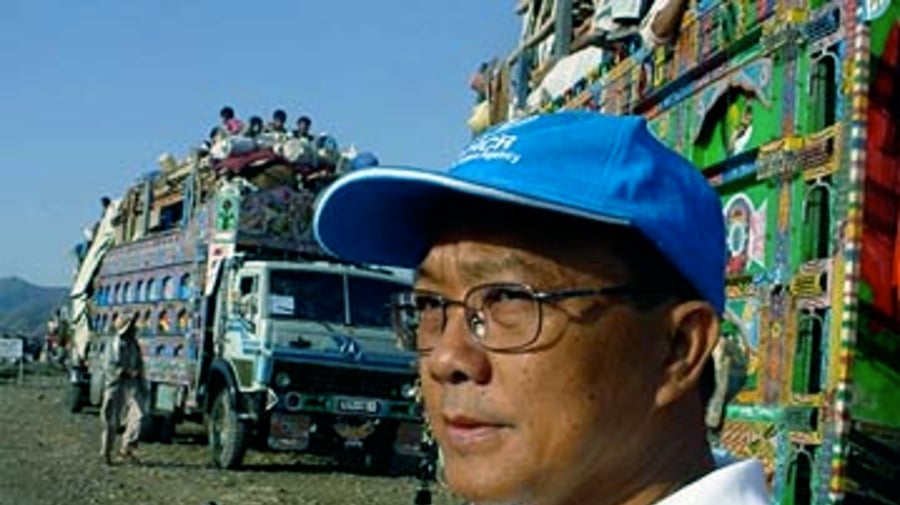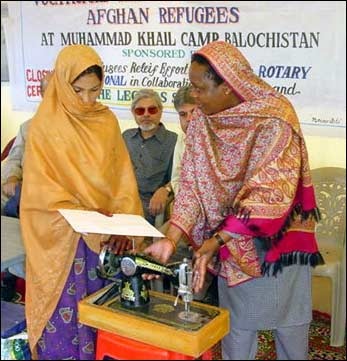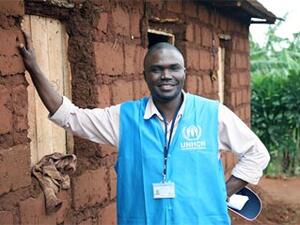UN Volunteers join international meeting on volunteerism in Pakistan
UN Volunteers join international meeting on volunteerism in Pakistan

UN Volunteer Efren Mariano directing the refugee convoy from Pakistan's North Western Frontier province to Afghanistan.
ISLAMABAD, Pakistan, Dec 6 (UNHCR) - Whether opening or closing refugee camps, providing literacy classes or supplying clean water, United Nations Volunteers from around the world have taken on key tasks for the UN refugee agency in Pakistan.
The eight UN Volunteers who are currently working with UNHCR in Pakistan are proof of the importance of this UN programme as they participate in the International Conference on Volunteerism and Millennium Development Goals that Pakistan's Prime Minister Shaukat Aziz opened in Islamabad on Sunday.
"The contribution of the hundreds of UN volunteers and a multitude of community volunteers has been key to protecting, assisting and facilitating the re-integration of millions of refugees around the world," says Guenet Guebre-Christos, UNHCR's Representative in Pakistan.
"UNHCR could not possibly achieve its mission without them, about 600 UN Volunteers in 2004 alone. We are grateful for their dedication; we thank them and salute them on this occasion - examples of the volunteerism that this conference is honouring," she adds.
The eight UN Volunteers with UNHCR in Pakistan - part of 455 serving right now with UNHCR worldwide - will have a chance to meet the Executive Coordinator of UNV, Ad de Raad, who is attending the conference. Carol Bellamy, Executive Director of UNICEF, is also at the conference, which was organised by the National Commission for Human Development of Pakistan and continues until Tuesday.

Jane Nankaayi handing over sewing machines to an Afghan refugee woman at the end of a training course in Mohammad Kheil camp in Balochistan province.
The meeting has drawn more than 150 participants from Pakistan and abroad, representing a broad group of government and civil society leaders. The focus is on fulfilling the UN Millennium Development Goals, which set targets for reducing poverty, hunger, disease, illiteracy, environmental degradation and discrimination against women by 2015.
The UN Volunteers with UNHCR have been crucial to the agency's operations, representing about 10 percent of the global staff at any moment. In Pakistan, they have played a prominent role, especially since UNHCR faced a new emergency with a flow of some 300,000 Afghans toward the Pakistani border because of the war in Afghanistan in late 2001.
UNHCR, with the support of the government of Pakistan, had to quickly set up a series of refugee camps along the border, often on inhospitable tracts of land. That involved not just transporting refugees to the site and distributing tents, but also required installation of vital infrastructure to meet the needs for water, sanitation, schools and clinics.


